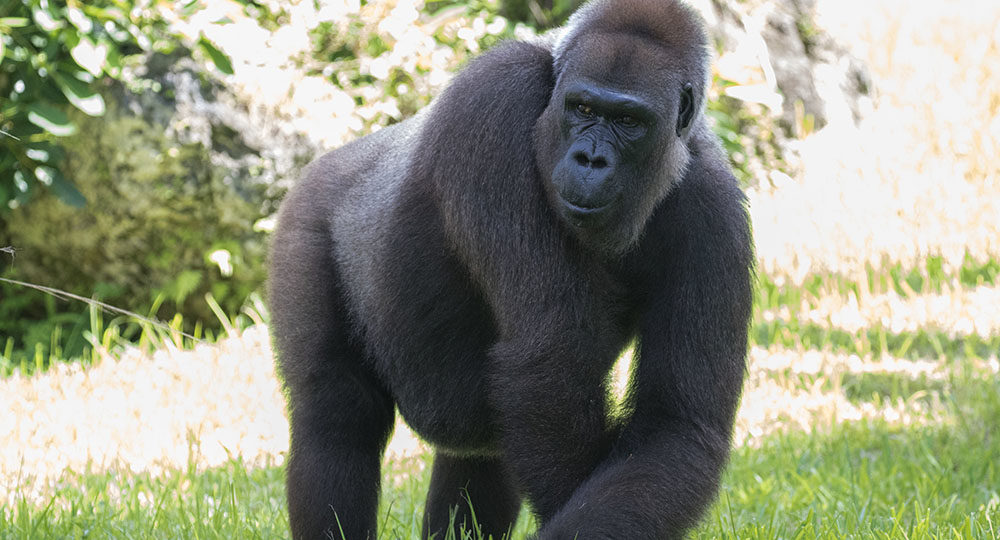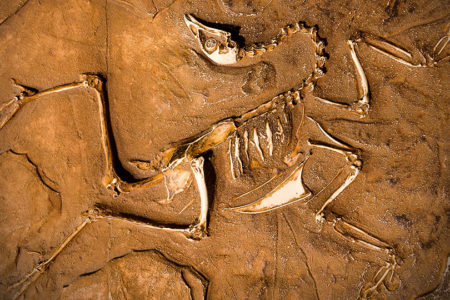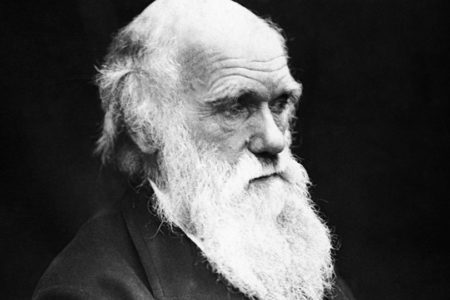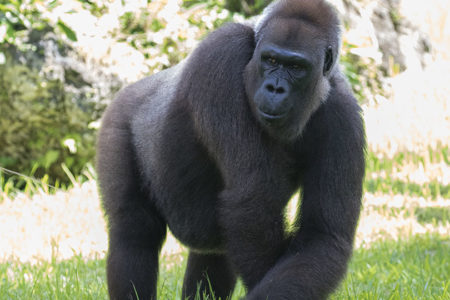The Monkey Trial
Eighty years ago this month, the famous Scopes Monkey Trial dominated the nation. It challenged the teaching of evolution in the public schools and initiated an era that has seen American education devolve from Bible based to an anti-Bible, anti-God view of the universe.
The drama unfolded in Dayton, Tennessee, a small, economically depressed town located between Chattanooga and Knoxville in the Tennessee River Valley. When the Dayton Coal and Iron Company went bankrupt in 1913, the population sunk to 1,800. Hard times fell on little Dayton,1 home of nine churches, two banks, a hosiery mill, a canning factory, a blast furnace, and the soon-to-be-famous Hotel Aqua on Main Street. 2
Dayton was considered a Christian town. Law professor Douglas Linder wrote that famous American journalist H. L. Mencken found Dayton “suffocatingly moral. He complained the town had no bootleggers, no gambling, no place to dance, and that ‘no fancy women’ had been seen in Dayton ‘since the McKinley Administration’” 25 years earlier. 3
It was a sleepy place, not a tourist attraction. But by the end of 12 days in July 1925, hardly an American alive had not heard of Dayton, Tennessee.
From the time Darwin first published his theories, American evangelicals, particularly in the South, fought hard against teaching evolution in school. Christopher Armstrong and Grant Wacker of Duke University wrote that between 1923 and 1925, Oklahoma, Florida, North Carolina, and Texas tried, “with mixed success, to stop the teaching of evolution in the public schools.”4 Tennessee joined them on March 21, 1925, by passing the Butler Act, the only law in the country that made it a crime to “teach any theory that denies the Story of Divine Creation of man as taught in the Bible, and to teach instead that man has descended from a lower order of animal.”5 A conviction carried a $500 fine.
The five-year-old American Civil Liberties Union (ACLU) quickly placed an ad in the Chattanooga Times offering to help any teacher who challenged the law. George Rappleyea, a 31-year-old former New Yorker, coal-mine manager, and evolutionist, read the ad and saw in it a way to bring business and fame to struggling little Dayton. He and local leaders formulated the plan; and Rappleyea contacted the ACLU, which agreed to fund the defense.6
All they needed was a willing teacher. They found their man in John Scopes, a 24-year-old high school football coach and substitute biology instructor. His textbook was A Civic Biology, by George William Hunter, “a pro-evolutionary work certainly, but a work more advanced than Darwinian theory.”7
The famous Scopes Monkey Trial, as it became known, began in a sweltering July heat. Mencken, one of hundreds of journalists who descended on Dayton, described the town as having “the atmosphere of a blast furnace.”8 Yet the stifling heat did nothing to deter visitors or prevent the town from becoming like a sideshow at a circus. Huge banners festooned buildings. Monkeys performed for the crowds (literally for peanuts). Hotdog and lemonade stands lined Main Street. The six-block area around the Rhea County Courthouse was dubbed Monkey ville. Wrote Linder, “Anti-Evolution League members sold copies of T. T. Martin’s book Hell and the High School,”9 and street preachers bellowed their messages up hill and down dale.
Business boomed at the Hotel Aqua, which was forced to turn patrons away. In the courthouse, built to seat 700, about 1,000 people squeezed themselves in, 300 standing, as the trial opened on July 10, 1925.10 In fact, the trial was later moved to the lawn because people feared the courtroom floor would collapse.
Prosecuting the case was the famous William Jennings Bryan, a Christian, lawyer, former U.S. secretary of state, and three-time democratic candidate for president. Clarence Darrow, a self-proclaimed agnostic who was considered the most famous attorney in the nation, defended John Scopes. Chicago radio station WGN broadcast live from the trial each day. And covering the story for the Baltimore Evening Sun was reporter H. L. Mencken.
The prosecution was brief. The defense had lined up expert scientific witnesses to support evolution, but the court would not allow them to testify. As a result, Darrow called an expert Bible witness, none other than William Jennings Bryan. Bryan’s entire testimony can be accessed on the Internet.
Questioning lasted more than two hours, but the judge abruptly adjourned the court and struck the entire examination from the record as irrelevant.
In his closing argument, Darrow, the defense attorney, pulled a switch. He asked the jury to find Scopes guilty, saying in part, “The court has told you very plainly that if you think my client taught that man descended from a lower order of animals, you will find him guilty….This law will never be decided until it gets to a higher court, and it cannot get to a higher court probably, very well, unless you bring in a verdict.”11
After 12 days of what some called “the trial of the century,” it took the jury only nine minutes to return a verdict of guilty. The judge fined Scopes a mere $100, and everyone went home. According to law professor Edward J. Larson, “Not a single editorial…determined it was a decisive event either killing the anti-evolution crusade or a tremendous victory propelling it.”12
Darrow appealed the conviction to the Tennessee Supreme Court, which reversed it on a technicality.
Five days after the trial ended, Bryan who had been suffering from diabetes and a heart condition for years, returned home from church Sunday morning, ate dinner, took a nap, and died in his sleep. He is buried in Arlington National Cemetery. His tombstone reads, “He Kept The Faith.”13 Bryan College, an evangelical Christian college in Dayton, is named after him. Darrow died in 1938 at age 80.
Tennessee repealed the Butler Act in 1967 when a teacher claimed it violated his First Amendment right to free speech. John Scopes became a petroleum engineer and died in 1970.
The Scopes trial was the beginning of court involvement in the never ending drama that has seen evolution overtake America. In the 1968 case of Epperson v. Arkansas, the U.S. Supreme Court ruled that evolution could be taught in public schools “because it is a science.” However, it disallowed creationism, “because it constitutes a religion.”14 In a 1987 Louisiana case, the Supreme Court ruled it unconstitutional to teach evolution and creationism together. In 2001 the State Board of Education in Kansas voted 7–3 to reverse its 1999 decision to remove evolution as a required subject. It also restored the teaching of two other evolution-oriented theories: cosmology and plate tectonics.15
In the years since the Scopes trial, America has so changed that God and the Bible have been thrown out of public education in favor of the theory of evolution, now considered “the bedrock of science.” In fact, laws are on record to keep creation science, considered a “religion,” from being taught.
If all this could happen in just 80 years, what do the next 80 years hold?
ENDNOTES
- “Monkey Trial: People & Events: The Site of the Trial: Dayton, Tennessee,” American Experience, [www.pbs.org/wgbh/amex/monkeytrial/peopleevents/e_dayton. html].
- Douglas Linder, “Famous Trials in American History: Tennessee vs. John Scopes—The ‘Monkey Trial,’” University of Missouri-Kansas City School of Law [www.law.umkc.edu/faculty/projects/ftrials/scopes/dayton.htm].
- Ibid.
- Christopher Armstrong and Grant Wacker, Duke University, National Humanities Center, “The Scopes Trial” [www.nhc.rtp.nc.us:8080/tserve/twenty/tkeyinfo/tscopes.htm].
- Ibid.
- “The Making of a Trial,” Court TV Online [www.courttv.com/archive/greatesttrials/scopes/making.html].
- Ibid.
- “Monkey Trial: people & Events: The Site of the Trial: Dayton, Tennessee,” American Experience.
- Douglas Linder, “Famous Trials in American History: Tennessee vs. John Scopes—The ‘Monkey’ Trial: Dayton, Tennessee,” University of Missouri-Kansas City School of Law [www.law.edu/faculty/projects/ftrials/scopes/evolut.htm].
- Ibid.
- Quoted in “A Battle of Wills,” Court TV Online [www.courttv.com/archive/greatesttrials/scopes/battle.html].
- Quoted in “The Scopes Monkey Trial” [www3.mistral.co.uk/bradburyac/tennesse.html].
- “A Battle of Wills,” Court TV Online.
- Raju Chebium, “75 years after the Scopes trial pitted science against religion, the debate goes on,” CNN.com Law Center [http://archives.cnn.com/2000/LAW/07/13/ scopes.monkey.trial/].
- “Can Science Conquer Kansas,” University of Wisconsin, Board of Regents [http://whyfiles.org/095evolution].







